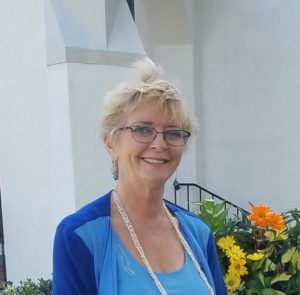
By JAMES BENNETT III
USFSP Student Reporter
Medical marijuana is now legal in 33 states, including Florida, and it is recreationally legal in 10.
Since the 1960s, when weed first became widely popular, it has become more potent and pure, and the methods of consumption have evolved with the creation of vaporizers and tinctures.
“This is not your grandfather’s marijuana,” psychiatrist Louise Buhrmann said. “It’s sort of like wine coolers to moonshine.”
Buhrmann appeared on a panel titled “Do like the Canadians; legalize pot” at the St. Petersburg Conference on World Affairs. But the discussion was not the marijuana pep rally that its name suggested.
Instead, panelists spent the hour discussing the legitimacy of marijuana’s supposed medical benefits and the repercussions of voters determining medicine by the ballot box.
Adriaan Buma, a public health physician in the Netherlands, even called the drug “pathetic.”
Buhrmann cited a news story from Colorado that said “for every dollar they bring in from the marijuana industry, they’re losing $4 because of the way they have to enforce it.”
Meanwhile, tax revenue from the marijuana industry made up less than 1 percent of the state’s total budget, she said.
Panelists spoke of the difficulty that traffic officers are facing finding reliable tests to detect marijuana usage. And states with legalized marijuana have seen an increase in motor vehicle accidents, they said.
Buhrmann said that available evidence supporting the benefits of cannabis use with PTSD patients is shaky and that people with anxiety disorders aren’t necessarily getting better.
There has been a rise in schizophrenia diagnosis with patients who regularly consume marijuana, she said, and opioid addiction has not disappeared, although opioid-related deaths have.
Cannabis use does, however, help patients with multiple sclerosis and cancer, said Andrew Hano, a retired hematologist and medical oncologist in Pinellas County with 32 years’ experience.
“My wife is a cancer patient and she has been using medical cannabis with great health and great relief,” Hano said
“The problem continues to be that we haven’t done enough research.”
On the federal level, marijuana is classified as a Schedule 1 drug, the same classification as heroin, LSD and ecstasy.
But in a majority of states, medical marijuana is legal.
One of them is Florida, where voters approved a constitutional amendment legalizing it in 2016.
The state has been slow to implement the will of the voters, however, and the Legislature banned smokable forms of marijuana in 2017.
The state was sued and a judge ruled that the ban was unconstitutional. Then-Gov. Rick Scott appealed the ruling, but his successor, Ron DeSantis, said the ban does not reflect the will of the voters.
If the Legislature doesn’t repeal the ban. DeSantis says, he will drop the appeal.
Information from the Associated Press was used in this report.
